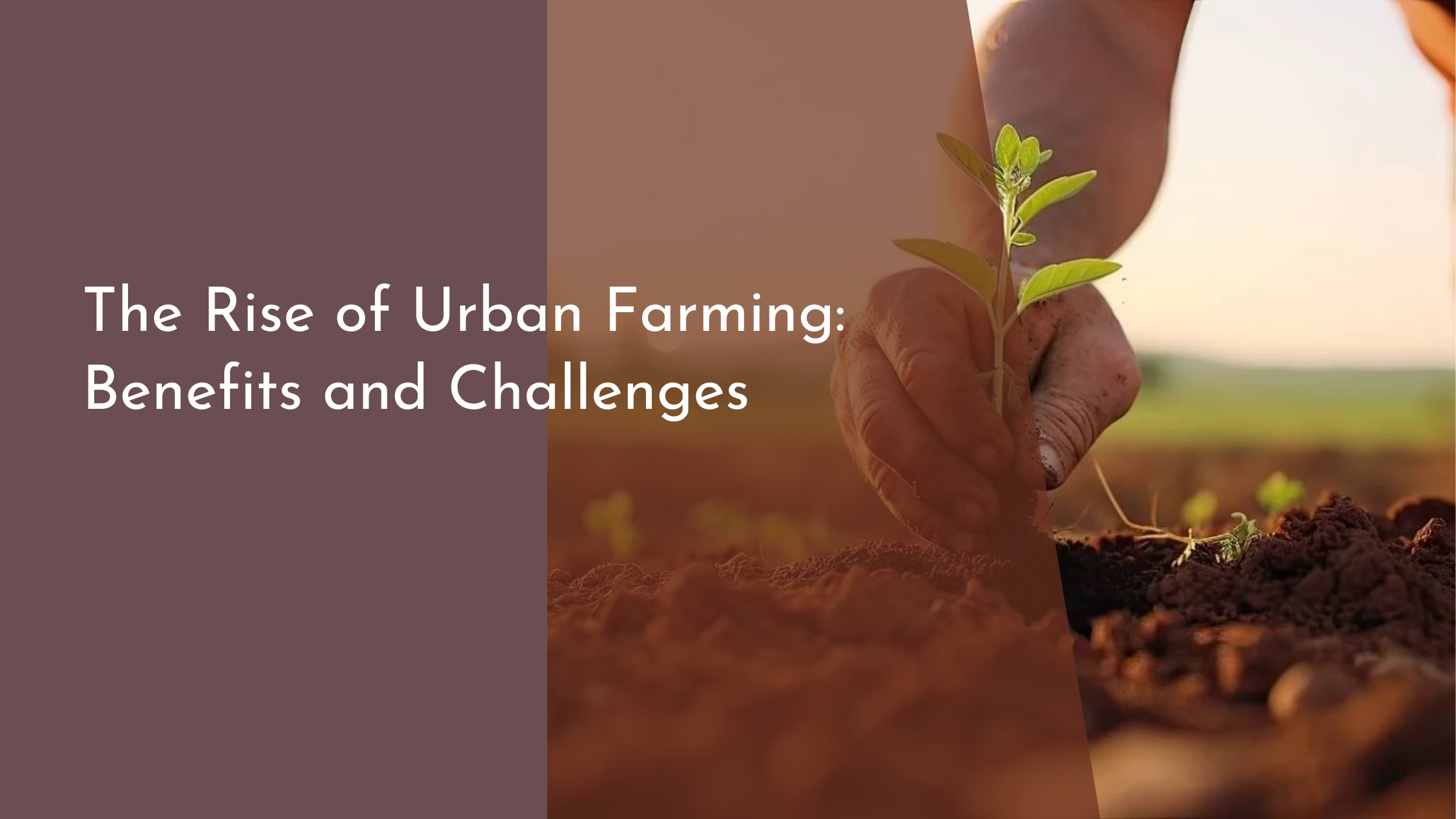The Rise of Urban Farming: Benefits and Challenges
Urban farming is rapidly transforming cityscapes around the world, providing a fresh take on agriculture that embraces innovation and sustainability. As cities continue to expand and populations grow, urban farming offers a promising solution to food security challenges, environmental concerns, and the need for green spaces. By cultivating crops within urban environments, this practice bridges the gap between consumers and food production, fostering a more sustainable and interconnected community. In this article, we’ll explore the rise of urban farming, its benefits, the challenges it faces, and the potential it holds for a greener future.
Understanding Urban Farming and Its Evolution
Urban farming, also known as urban agriculture, involves the cultivation, processing, and distribution of food in and around urban areas. This practice has roots that trace back centuries when city dwellers used small plots of land to grow food. However, modern urban farming has evolved into a diverse movement that includes rooftop gardens, vertical farms, hydroponics, and community gardens. These innovative approaches are designed to maximize limited space and resources, making it possible to grow fresh produce right in the heart of cities. Urban farming not only redefines food production but also challenges traditional notions of agriculture by integrating technology and sustainable practices.
The evolution of urban farming has been driven by several key factors, including technological advancements, increased awareness of environmental issues, and a growing demand for local and organic food. Cities like New York, Tokyo, and Singapore have embraced this trend, incorporating urban farming into their city planning and sustainability efforts. The rise of smart farming techniques—such as internet-of-things (IoT) devices that monitor plant health and growth—has further propelled urban farming into the future. As urban agriculture continues to gain momentum, it represents a dynamic intersection of technology, ecology, and community development.
Key Benefits of Embracing Urban Agriculture
One of the most significant benefits of urban farming is its potential to enhance food security. By producing food locally, cities can reduce their reliance on distant agricultural systems, shorten supply chains, and ensure a fresh, reliable food supply. This becomes especially important in times of crisis when global supply chains can be disrupted. Urban farming also allows cities to provide residents with access to healthy, organic produce, which can lead to improved public health outcomes and a reduction in diet-related diseases.
Beyond food security, urban farming contributes to environmental sustainability. Green spaces created by urban farms help to mitigate the urban heat island effect, improve air quality, and promote biodiversity by providing habitats for pollinators and other wildlife. Furthermore, urban farming can reduce the carbon footprint associated with transporting food over long distances. By fostering a culture of sustainability, urban agriculture encourages environmentally responsible practices, such as composting, rainwater harvesting, and the use of renewable energy sources.
Overcoming Challenges in Urban Farming Practices
While urban farming presents numerous opportunities, it also faces a range of challenges. One of the primary obstacles is the limited availability of space in densely populated urban areas. Finding suitable land for farming can be difficult and expensive, often requiring creative solutions like vertical farming or repurposing unused rooftops and vacant lots. Additionally, urban farming must navigate complex regulations and zoning laws that can vary widely between cities, posing a barrier to entry for many aspiring urban farmers.
Another challenge is the need for specialized knowledge and technology to optimize crop yields in urban environments. Urban farmers must be adept at managing soil health, pest control, and water usage, often requiring the adoption of advanced techniques like hydroponics and aquaponics. Access to these technologies and the necessary training can be limited, particularly for low-income communities. To overcome these challenges, collaboration between local governments, businesses, and educational institutions is essential to provide support and resources for urban farming initiatives.
Envisioning a Greener Future with Urban Farming
As urban farming continues to evolve, it holds the potential to reshape our cities into greener, more sustainable environments. By integrating urban agriculture into city planning, communities can create multifunctional spaces that serve both ecological and social purposes. Imagine cities where rooftops are adorned with lush gardens, community parks are filled with fruit trees, and vertical farms line busy streets. Such a vision not only enhances the aesthetic appeal of urban areas but also fosters a sense of community and connection to nature.
Looking to the future, urban farming can play a pivotal role in addressing global challenges such as climate change and population growth. By prioritizing sustainable food production, cities can reduce their environmental footprint and contribute to the global effort to combat climate change. Additionally, urban farming initiatives can empower local communities by creating jobs, providing educational opportunities, and fostering a culture of innovation and collaboration. As more cities embrace urban farming, we move closer to a future where urban landscapes are not just centers of consumption but also hubs of production and sustainability.
The rise of urban farming marks a pivotal shift in how we think about food production and urban living. It offers a unique opportunity to transform cities into sustainable and resilient ecosystems that prioritize health, community, and the environment. While challenges remain, the innovative spirit driving urban agriculture continues to inspire solutions that overcome these hurdles. As we envision a future where urban farming is an integral part of city life, we take an essential step towards creating a more sustainable world for generations to come. Whether through community gardens or advanced vertical farms, the future of urban farming is bright, promising a greener, healthier urban landscape for all.

